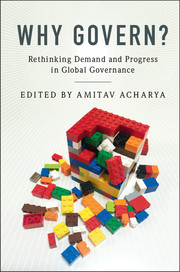Book contents
Bibliography
Published online by Cambridge University Press: 05 September 2016
- Type
- Chapter
- Information
- Why Govern?Rethinking Demand and Progress in Global Governance, pp. 297 - 322Publisher: Cambridge University PressPrint publication year: 2016



